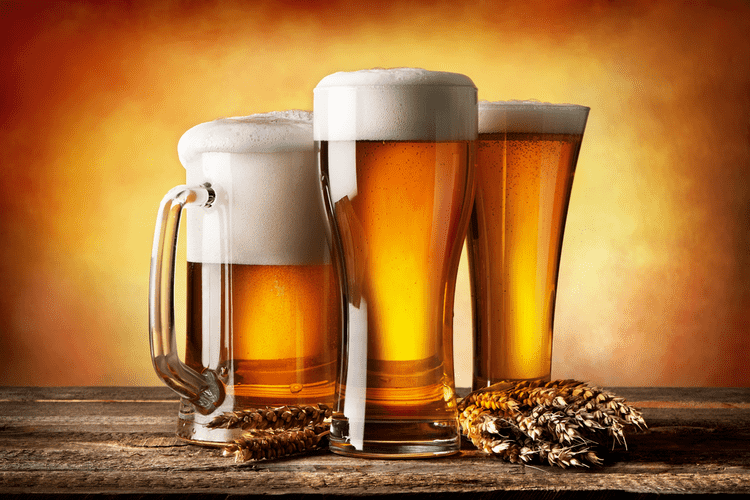Environments and opportunities for other experiences matter—they also shape brain pathways of reward. They are critical to helping those recovering from addiction find a new sense of purpose. It is important to recognize the impact of these environmental and social factors on addiction and to address them as part of the treatment process.
About Nature Portfolio

In other words, from our perspective, viewing addiction as a brain disease in no way negates the importance of social determinants of health or societal inequalities as critical influences. In fact, as shown by the studies correlating dopamine receptors with social experience, imaging is capable of capturing the impact of the social environment on brain function. This provides a platform for understanding how those influences become embedded in the biology of the brain, which provides a biological roadmap for prevention and intervention. Substance addiction affects millions of individuals worldwide and yet there is no consensus regarding its conceptualisation.
The Ethics of Blaming and Punishing Individuals with Addiction

As a result, drug abuse becomes fundamentally linked to their brain and is no longer a free choice. In http://israeli-medicine.ru/page/kardiologi-razvejali-mif-o-polze-krasnogo-vina-dlja-zdorovja-serdca recent decades, researchers began to label addiction as a disease rather than a behavioral choice. This decision stems primarily from how addiction affects the brain by changing it, progressively forcing an individual to crave the drug until use eventually becomes an unconscious act rather than a conscious choice.
- Once whole genome sequencing is readily available, it is likely that it will be possible to identify most of that DNA variation.
- Substance addiction affects millions of individuals worldwide and yet there is no consensus regarding its conceptualisation.
- Hence, the BDM holds the view that self-control is impaired, which is a reasonable conclusion.
Addiction policies should accord with neuroscience, Stanford researchers argue
- Beyond making the case for a view of addiction as a brain disease, perhaps the more important question is when a specific level of analysis is most useful.
- To a large extent, the research and data on addiction are accepted by the majority of scholars.
- Human neuroscience documents restoration of functioning after abstinence 40, 41 and reveals predictors of clinical success 42.
- Two, and this comes later in the book, opiate addiction in Vietnam veterans may have implications for the study of addiction in broader populations.
Even some heroin addicts, with the resources to obtain heroin from safe sources, may not suffer harms significant enough to plausibly constitute an impairment of their agency or their ability to pursue a good life. According to this account, addiction is not a brain disease, because it is sometimes not a disease at all. While the claim that the dopaminergic system is dysfunctional in addicts is plausible, a dysfunction of this kind is not sufficient for impairment in many accessible environments. The misrepresentation identified is at a subpersonal level, but an agent suffers from a pathology of the mind only when there is personal-level problem. Mental illness is quite plausibly identified with a defect of rationality of some kind (Graham, 2010), and a subpersonal misrepresentation is not a defect of rationality. It is quite possible for mechanisms to misrepresent while agents properly represent; once someone is acquainted with a particular visual illusion this might be true of her on future encounters with it.

Addiction as a Choice

That’s because the medical profession had largely abandoned its duty to take care of people with addiction. There is a useful version of the word „disease“ when talking about addiction that says therapy and medications can save lives. But the term is messy, and it also locates all of the causes in biology and overlooks some of the other http://prognoz.org/prognozistu/brain-maker determinants of people’s health.
- Individuals who enter and remain in treatment can manage their addiction and improve their quality of life.
- Addiction is a complex condition that is influenced by a variety of factors, including genetics, environment, and neurobiology.
- Dysfunctions in mechanisms involved in self-control can be expected to impair agency under a range of conditions.
Addiction is Not a Brain Disease (and it Matters)
- Such a definition is recommended in order to research addiction from unbiased premises.
- However, after careful analysis, the models merely seem to be in disagreement regarding the degree of affected capacity.
- To strive for a universal model and application of it, therefore, does not do justice to the heterogeneity of the individuals involved.
- For some conditions that cause suffering, neural correlates are sufficient to cause an impairment and for some they are not; only those which fit into the former class count as brain diseases.
- We acknowledge that some of these criticisms have merit, but assert that the foundational premise that addiction has a neurobiological basis is fundamentally sound.
Under the disease model, treatment for addiction focuses on managing symptoms and preventing relapse. This can include a combination of therapy, medication-assisted treatment, and support groups. The goal is to help individuals with addiction regain control over their lives and manage their condition in a way that allows them to live a fulfilling and healthy life. This disease model underscores the compulsive nature of addiction, driven by neurological changes, making it https://only-paper.ru/load/voennaja_tekhnika_iz_bumagi/broneavtomobil_iz_bumagi/eac_dorchester_acv/12-1-0-7674 challenging for individuals to abstain without professional help.
